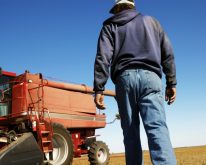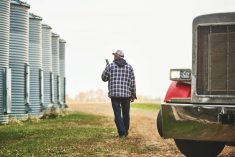One of the hardest truths about farming, like most professions, is that some people just aren’t cut out for the work. Worse, it isn’t always clear from an early age who has the makings of a good farmer and who hasn’t, which puts some farm parents in the awkward position of having built up the hopes of a child who later proves ill matched for the job.
Making it even worse is that the parents find themselves in such an uncomfortable corner, they may let the situation continue unresolved for years while the costs add up, and while the opportunities for the child to act on some more reasonable expectations slip away.
Read Also

How to go from managing to mentoring
https://www.youtube.com/shorts/L7Q7OZ_d3cI There’s a moment every leader remembers: that moment when someone looks at them differently. Not because of what that…
In short, it becomes a royal mess.
Across the country, farm advisers and others are getting called to more farms where the question of whether the next generation has what it takes is coming to the fore. In fact, as farms get larger and as the pressures get more intense for farmers to excel not only in the field and in the barn but also in financial and business management, it’s likely happening on more farms than ever before.
Experts say injecting the truth into these cases can be a painful process, but it’s better to address the issue of an incompetent heir sooner rather than later. The farm depends on it.
Assess for levels of competence
Parents may start with an ideal of what their successor should look like — an ideal that no child will ever grow into. No one is equally capable in every area, after all, which is another way of saying that areas of weakness will always remain.
A parent’s first challenge is to objectively and honestly consider their chosen child’s competency as future owner and operator of the farm, says Gordon Colledge of Advance Communications in Lethbridge, Alta. Colledge is a succession planner with years of experience who has often encountered parents in the midst of questioning their succession choices and feeling challenged by their limited options.
“Sometimes the draft pick to take over the farm is simply because the other kids have already gone,” said Colledge. Sometimes there was only ever one child born to the family, or the family tradition was to choose the only or oldest son as the successor.
No matter the circumstances, most experts counsel clients to take a hard look at their chosen successor, preferably 10 to 20 years before retirement. Liz Wagner of Orr Insurance Brokers in Stratford, Ont., says some farmers are comparatively lucky, because there may be a clear reason why their child isn’t ready to take over, and the reason may not be the child’s fault at all. These situations are typically the easiest to solve, and they can also be the easiest to put back on track.
“In a lot of cases, if a successor isn’t up to speed, it can be laid back at the parent’s doorstep,” Wagner explains. “Maybe it’s just a matter of some training and being allowed to do something.”
But, Wagner cautions, it isn’t always that simple. It’s also possible that the child simply doesn’t have the aptitudes or attitudes needed for success.”
Wagner encourages farmers to be honest with themselves about their family. Often a farmer who has a truly incompetent heir knows it deep down.
That’s what makes it so challenging. Indeed, Wagner often sees a pattern, and so does Colledge. “They (the son or daughter) can be extremely nice, hardworking people,” Colledge says, “but they’re limited.
“Probably the factor I look for the most is teach-ability,” Colledge adds. “A capable successor will recognize his or her own strengths and weaknesses, and then build strength where there is weakness.”
If your successor doesn’t seek help, doesn’t spend much time reading magazines or trade papers, and doesn’t initiate their own attendance at farm conferences or relevant workshops, consider these to be red flags of incompetence.
But of course, real life can be even more complicated.
Sometimes, one parent has seen the signs, says Robert Fuller of Brimage Law Group in Simcoe, Ont., but their spouse needs convincing.
“Dad’s usually the business guy or the technical guy and he can see that the kid really doesn’t know what they’re doing or isn’t a good farmer, but Mom tends to be more forgiving and a lot of times won’t acknowledge that really the kids just can’t do it because they think somehow it means they trust them less,” says Fuller.
As ever, the challenge in farming is to know when you’re being a business manager, and when you’re being a parent, and how to keep the roles clear.
When parents disagree, Fuller’s first recommendation to them is to close the door and have an honest conversation with one another, bringing in an objective third party if that’s what it takes to get on the same page.
Building competence
If a successor truly is incapable of becoming the owner operator of the farm, there are many options available to farm parents, depending on the level of incompetence. Sometimes inabilities are a result of immaturity, learning disabilities, or substance abuse, and these problems may not be insurmountable in the long term.
In the case of immaturity or inexperience, Fuller believes farm parents are already good at providing kids with opportunities. “Generally we tend to put our kids in soft-walled rooms, but farm families tend to let their kids get dirty a little more,” observes Fuller. “Farm kids tend to be a lot more mature because they’re forced to go out and actually do things.”
In fact, giving a child the opportunity to fail may be just the management lesson they need. In other cases where children are still young, Wagner says she has seen successors who are suffering from emotional baggage or a drug problem respond well to a temporary trust arrangement. “If you set up a trust structure,” Wagner says, “there can be times where that structure is reviewed because a lot of kids will grow out of it, while other ones don’t.”
Colledge feels that in the case of addictions, a parent’s best bet is to call in professional help quickly. “We can close one door by requiring two or three signatures on cheques, but for a person who’s really addicted, there’s no end of resources on the farm that can be sold or exchanged for drugs or alcohol. Pack them up and take them to an addictions counsellor.”
Another temporary option which Fuller has seen work for the right people is to appoint a manager and retain the successor purely as an employee, arranged as part of a trust. He says there are tax implications to discuss with an accountant in this case, “but don’t ever let the tax tail wag the dog.
“Look at the practical issues first and then worry about how you’re going to save taxes from doing it,” Fuller says.
Alternatively, establishing a board of advisers or directors can work, depending on the size of the operation because larger operations tend to be better able to pay directors. In smaller cases where people may be more discouraged by the liabilities that come with becoming a director, advisers can be a better fit.
Fuller says it all depends on whether the successor will listen to a board which doesn’t have the power to compel action. But Wagner reminds smaller operators to consider that “especially in a farm family, there are quite often family members or close neighbours who are willing to try and help in a mentoring capacity.” In any case, she warns farmers to be prepared for these options to take longer to implement than more permanent solutions.
Permanent solutions
When it’s obvious a temporary solution won’t meet the family’s needs, the options are clearer. Overcoming physical disabilities is usually straightforwardly done, and Fuller says that in his experience, the parents of individuals who have been identified with other disabilities are good at educating themselves on options such as Henson trusts which will not disqualify kids from receiving government assistance programs in spite of inheritances, though he finds grandparents, aunts, and uncles aren’t.
But when the incapabilities fall to the extremes outlined by Colledge, his recommendation is to make the business’s objectives clear and move on if they can’t be met. “The object is to produce a very good farm leader and it should be known that if he or she doesn’t measure up in a certain period of time, that person must be replaced,” says Colledge, “and often the best replacement is outside the family.”
But for many farmers, this isn’t a palatable solution. “If the successor is completely incapable, most of the time there isn’t a succession plan because the parents know it just cannot happen and it’s just a strict dispersal,” says Wagner.
To avoid such an outcome, these advisers say, start working with kids at a young age, encourage their input, be open about the farm’s management practices, and allow them to evolve into the role over time.
If realities must be dealt with, then deal with them.
“It doesn’t mean that you love the kids less,” Fuller says, “but you have to acknowledge that everybody has weaknesses.” CG
















